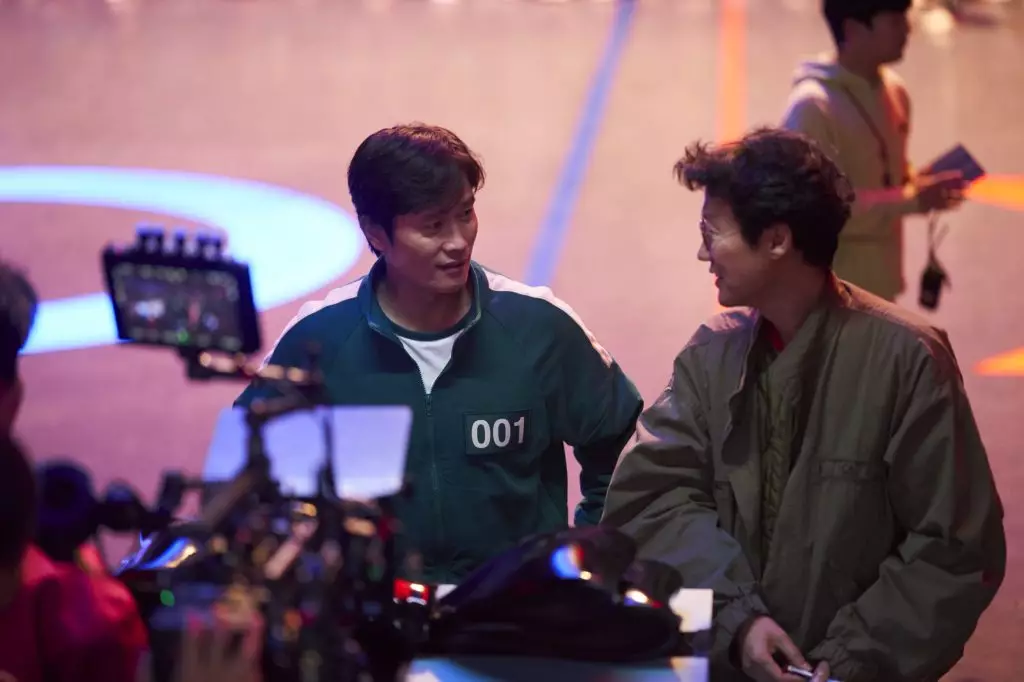The renowned South Korean actor Lee Byung-hun has made significant waves in the entertainment industry, but perhaps his most notable transformation has occurred with the release of Squid Game Season 2. Originally introduced in a limited capacity as the Front Man, In-ho, his character has blossomed into a cornerstone of the storyline in the new season. This evolution not only underscores Lee’s versatility as an actor but also reflects the series’ ability to create deeper narrative arcs that engage its audience on multiple levels.
In Season 2, Lee’s character emerges from behind the mask of the enigmatic Front Man to become Player 001, marking a departure from his previous role. This unexpected twist allows viewers to see the character’s moral complexities and motivations, shedding light on a previously obscured past. Director Hwang Dong-hyuk’s innovative storytelling takes center stage as Lee reveals that his initial expectations of the sequel’s direction were upended after reading the completed script. This unpredictability adds layers to the narrative structure, challenging viewers to rethink not only the motivations of In-ho but also those of protagonist Gi-hun as they navigate a treacherous landscape of psychological and physical peril.
Lee Byung-hun’s career trajectory is a fascinating one. He first gained international recognition with roles in acclaimed Korean films such as Joint Security Area, A Bittersweet Life, and The Good, the Bad, the Weird. His successful transition to Hollywood, exemplified by his performances in G.I. Joe: The Rise of Cobra and its sequels, showcases his exceptional talent. Yet, despite this Hollywood success, his recent experiences at the Season 2 premiere highlighted a poignant aspect of his journey. For the first time, he walked the red carpet in connection with a Korean production, surrounded by his compatriots and acknowledging the resurgence of Korean content on a global scale.
This moment of reflection about his journey—transitioning from local fame to international recognition—underscored a critical shift in the perception of Korean media. Lee expressed pride in participating in a project that represents Korean culture, illustrating a broader trend where Korean storytelling has impacted global audiences significantly. As the second season of Squid Game ascended to Netflix’s top non-English shows, Lee’s experience encapsulates the unique intersection of regional narratives gaining worldwide appeal.
Among the myriad moments that define Squid Game Season 2, it is the intricate dynamics between characters that come to the forefront. Lee describes a particularly poignant scene where his character collaborates with Gi-hun just before a pivotal rebellion. The dialogue between Front Man and Gi-hun reflects a deeper philosophical debate, especially when Gi-hun suggests the notion of making “a small sacrifice for the greater good.” This exchange serves as a microcosm of the overarching themes of the series, blurring the lines between right and wrong, victors and victims.
The subtle smile that Lee portrays as Front Man during this interaction encapsulates the conflict brewing within his character—a mixture of loyalty, manipulation, and morality. This complexity is what adds depth not only to In-ho’s character but also challenges viewers to consider their views on the sacrifices made in pursuit of freedom and justice. Lee’s ability to convey these nuanced emotions speaks volumes about his craft, transforming the landscape of character development in television.
The cultural phenomenon that is Squid Game continues to cement its status as a landmark achievement in global entertainment. Following its massive viewership, the series has opened doors for numerous discussions around representation, storytelling complexity, and the burgeoning impact of Asian cinema in the entertainment industry. The success of Season 2 exemplifies the synergy of powerful narrative, high-stakes drama, and character development.
As Lee Byung-hun prepares to take on further projects, including his collaboration with renowned director Park Chan-wook, the anticipation around his future performances only grows. His journey through both Korean and Hollywood landscapes serves as a testament to his resilience and adaptability in an ever-changing industry. The evolution of his character in Squid Game not only reflects his depth as an actor but also encapsulates the hope that unique narratives will continue to find their place on the global stage.
Lee Byung-hun’s progression from supporting to central character in Squid Game Season 2 not only showcases his remarkable talent but also embodies the shift in international media consumption patterns, illustrating the profound impact of Korean narratives on a global audience.
